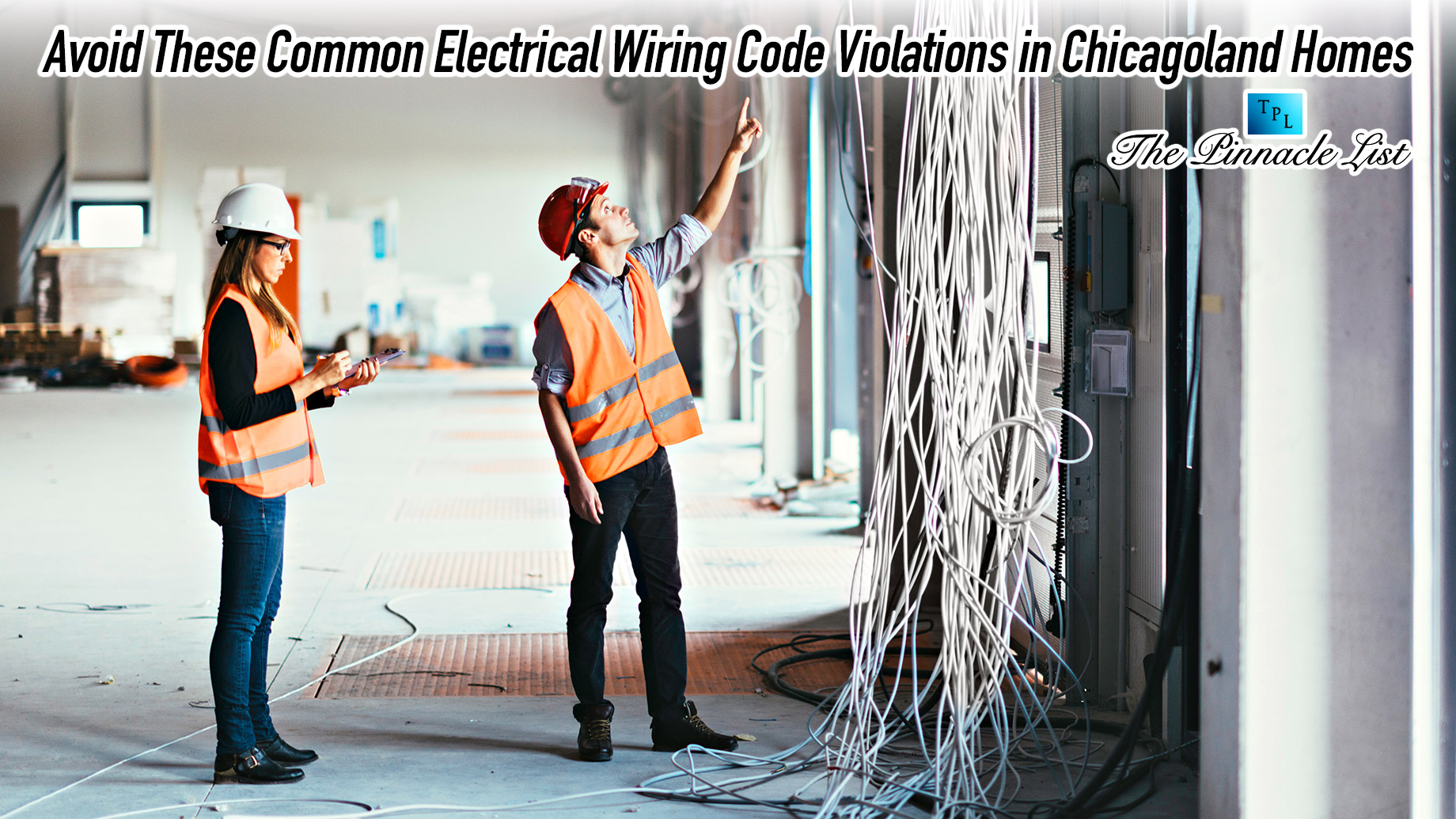
Electrical wiring issues are more than just minor inconveniences—they can pose serious hazards to your home and family. For homeowners in Chicagoland, understanding common electrical wiring code violations and how to avoid them is crucial. Proper wiring not only ensures safety but also protects your investment, especially in older homes where outdated systems are prevalent. This post highlights the most frequent wiring mistakes in Chicagoland homes and guides mitigating these potential risks. If you are a local homeowner, keep reading to see if your property may be in violation.
Why Wiring Code Compliance Matters in Chicagoland
The city of Chicago and surrounding areas have some of the strictest wiring codes in the country. These regulations exist to guarantee the safety, efficiency, and functionality of electrical systems. However, many Chicagoland homes—whether due to age, DIY repairs, or unlicensed work—end up with wiring that does not meet the code. When violations occur, they can lead to personal injury, property damage, or even hefty fines during home inspections. Working with licensed professionals such as Precision Today Plumbing Heating Cooling Electrical ensures your wiring is safe and up to code.
Improper Grounding and Bonding
Grounding and bonding are critical components of safe electrical systems. Grounding ensures that excess electricity has a safe path to follow, protecting individuals from shocks during electrical surges. Bonding connects various metal parts within an electrical system to minimize risk. However, improper grounding and bonding are rampant issues, especially in older Chicagoland homes. These errors might not cause immediate problems but could have dire consequences during electrical malfunctions or lightning storms. A professional inspection can detect and resolve these problems efficiently.
Overcrowded Electrical Panels
One frequent violation is overcrowded electrical panels, sometimes called “double lugging” or “double tapping.” This occurs when two circuits share the same panel breaker lug. Though this might seem like an efficient way to maximize an electrical panel’s capacity, it is unsafe and against the code in Chicagoland. Overcrowding increases the risk of overheating, leading to potential electrical fires. Homeowners should focus on expanding their panel capacity or upgrading to modern systems.
Usage of Underrated Circuit Breakers
Circuit breakers are essential for preventing overloaded circuits, yet another common violation occurs when homeowners install circuit breakers with ratings that do not match the circuit’s actual load requirements. Underrated circuit breakers cannot handle the current flow of high-demand electrical devices, resulting in frequent tripping or potential fires. Homeowners in Chicagoland often overlook this issue until problems arise.
Incorrect Splicing of Wires
Splicing issues, like connecting two wires without using a proper junction box, are another common violation. Homeowners may attempt to splice wires on their own during small-scale electrical repairs or installations, but improper splicing exposes the connections. Without the protection of a junction box, sparks can ignite nearby materials, leading to fires. All spliced connections must be made within code-compliant enclosures. Relying on licensed electricians, such as those at Precision Today Plumbing Heating Cooling Electrical, will keep your wiring safe and in line with the law.
Overuse of Extension Cords
Extension cords can be a handy temporary solution, but they are not a long-term substitute for permanent wiring. Unfortunately, some homeowners rely on extension cords to power additional appliances or devices, violating critical code principles. Overusing extension cords causes overloaded circuits and creates tripping hazards, increasing risks of damage or injury. Installing additional outlets or circuits is the proper way to resolve this issue, a job that experts do safely and efficiently.
Unsecured or Loose Outlets
Loose outlets may seem like a minor inconvenience, but they represent a serious code violation and safety hazard. They create a potential fire risk and increase the likelihood of electric shocks. Chicagoland inspectors prioritize the proper securing of outlets during evaluations. If you notice any outlets in your home that shift when plugging in devices, contact professionals to address the problem immediately.
Installation of Non-Approved Materials
Chicagoland code specifies the use of approved materials for electrical installations, particularly wiring and conduits. This means materials must meet safety ratings and be suitable for specific applications. For instance, using non-metallic sheathed cable (NM cable) in areas where Chicago’s requirements strictly call for conduit is a clear violation. Inspections will easily flag such issues, and they must be corrected before final home sales or upgrades. Experts at Precision Today Plumbing Heating Cooling Electrical stay up to date on these regulations to ensure your materials comply fully.
Absence of a GFCI Outlet in Wet Areas
Ground-fault circuit interrupter (GFCI) outlets are required in all wet or damp areas, such as bathrooms, kitchens, laundry rooms, and outdoor spaces. These outlets are designed to shut off power instantly when they detect an electrical fault, such as water exposure, helping to prevent shocks and injuries. Failing to install GFCI outlets in specified areas is a common violation, particularly in homes built before 1971. Upgrading or installing GFCI outlets is a small yet impactful improvement that boosts safety.
Avoid Code Violations with Professional Help
Understanding and addressing common electrical wiring code violations is critical for maintaining safety and compliance in any Chicagoland home. While it can be tempting to tackle DIY electrical projects, the risks rarely justify the reward. Ensuring your electrical systems meet the code requires expertise and precision—qualities you will find with Precision Today Plumbing Heating Cooling Electrical. Their licensed team is well-versed in Chicagoland’s specific codes and can provide thorough inspections, repairs, and upgrades with safety and efficiency at the forefront.